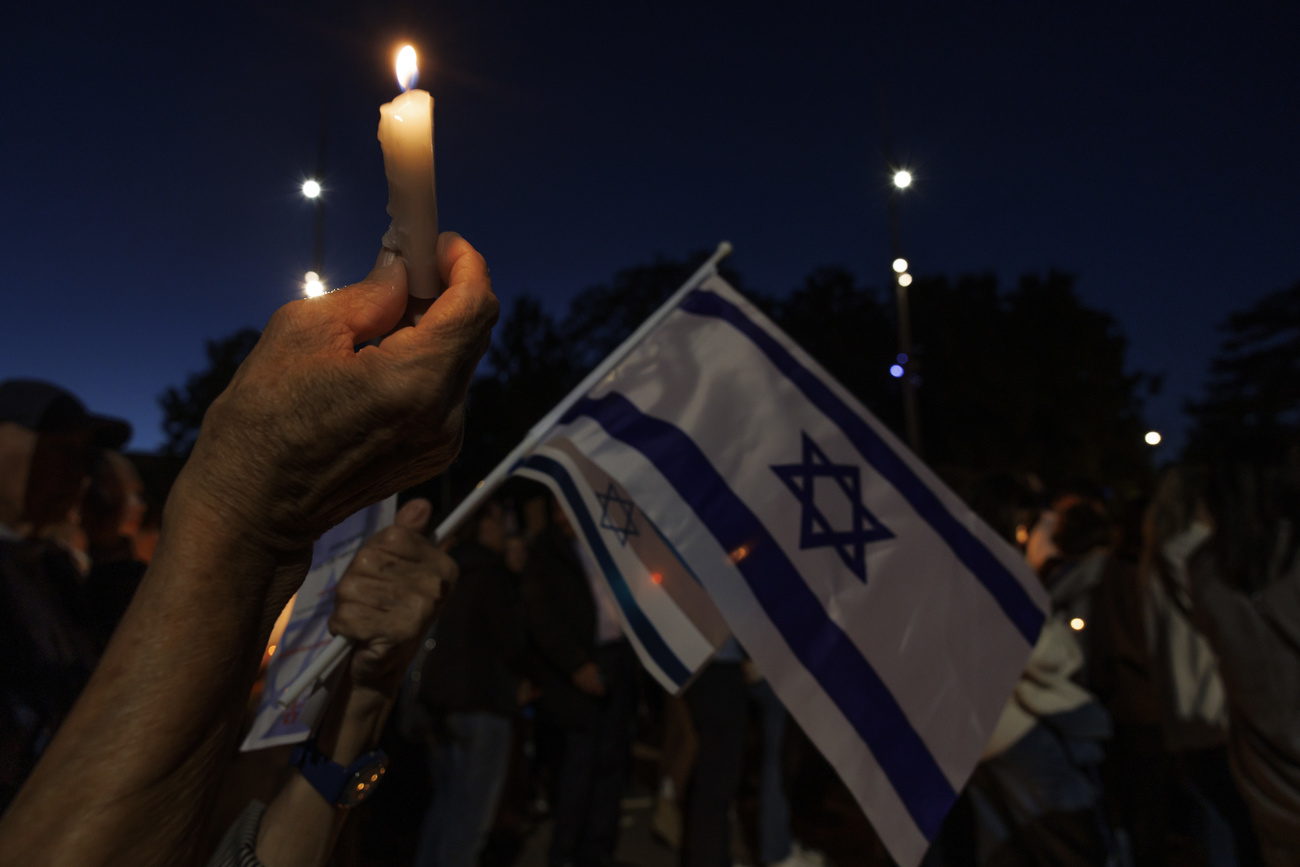
Hundreds of Israelis gather in Geneva

Hundreds of Israelis applauded the Swiss government’s decision on Hamas on Wednesday evening in Geneva. As a symbol of the tensions, in the same city the Palestinian mission to the UN accused Israeli Prime Minister Benjamin Netanyahu of “incitement to genocide”.
“It’s them or us.” In front of the 500 to 600 demonstrators gathered on the Place des Nations, many of them carrying flags, the Israeli ambassador to Switzerland, Ifat Reshef, said neutrality was out of the question in the wake of Hamas’s attacks.
Following the Swiss government’s announcement on Wednesday that it intended to classify the Islamist group as terrorists, Reshef welcomed “an important step in the right direction”. She promised to ask the authorities in the next few days for details of how and when this measure would be implemented.
“It is important to act quickly,” she insisted. “Israel will win this war,” her colleague at the UN in Geneva, Meirav Eilon Shahar, had repeated twice before the gathering at the invitation of the Swiss-Israeli Association.
+ Israeli-Palestinian war revives Hamas debate in neutral Switzerland
Appeal for hostages
“The number of people here today and the statements made by countries from all over the world show us the support” for Israel, she added, as the rally was monitored by a heavy private security presence.
Among the demonstrators were placards reading “Hamas = ISIS”, and “Bring them home”, in reference to the hostages in the Gaza Strip.
In a petition that they intend to hand over to a number of institutions and to UN secretary-general António Guterres, the organisers are calling for the Geneva-based International Committee of the Red Cross (ICRC) to have access to the hostages. The hostages must be “released immediately” or handed over to a third state, they said, calling for UN efforts.
‘Genocide’
Also in Geneva on Wednesday the Palestinian mission to the UN unveiled a rare reaction since Saturday’s attacks. On Tuesday it accused Benjamin Netanyahu of “incitement to the crime of genocide”, because of his desire to “raze Gaza to the ground”. It also asked Israel’s allies to condemn Israel’s “state terrorism”, and not just the actions of Hamas.
The Palestinian mission explained that for decades it had sought to obtain more rights for its people in a peaceful manner before international organisations. An approach met with “obstacles at every stage”, it said.
This news story has been written and carefully fact-checked by an external editorial team. At SWI swissinfo.ch we select the most relevant news for an international audience and use automatic translation tools such as DeepL to translate it into English. Providing you with automatically translated news gives us the time to write more in-depth articles. You can find them here.
If you want to know more about how we work, have a look here, and if you have feedback on this news story please write to english@swissinfo.ch.

In compliance with the JTI standards
More: SWI swissinfo.ch certified by the Journalism Trust Initiative




























You can find an overview of ongoing debates with our journalists here . Please join us!
If you want to start a conversation about a topic raised in this article or want to report factual errors, email us at english@swissinfo.ch.